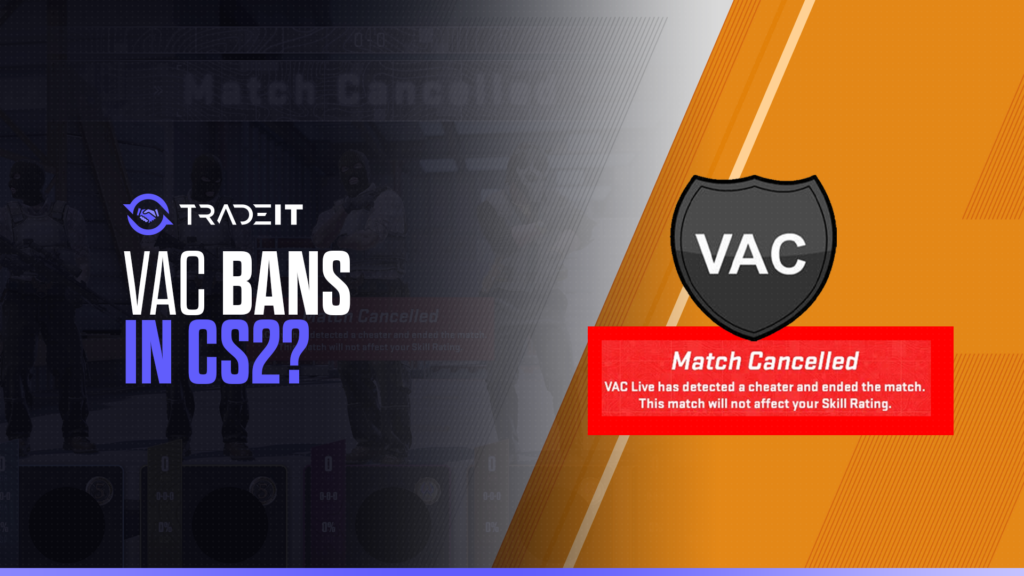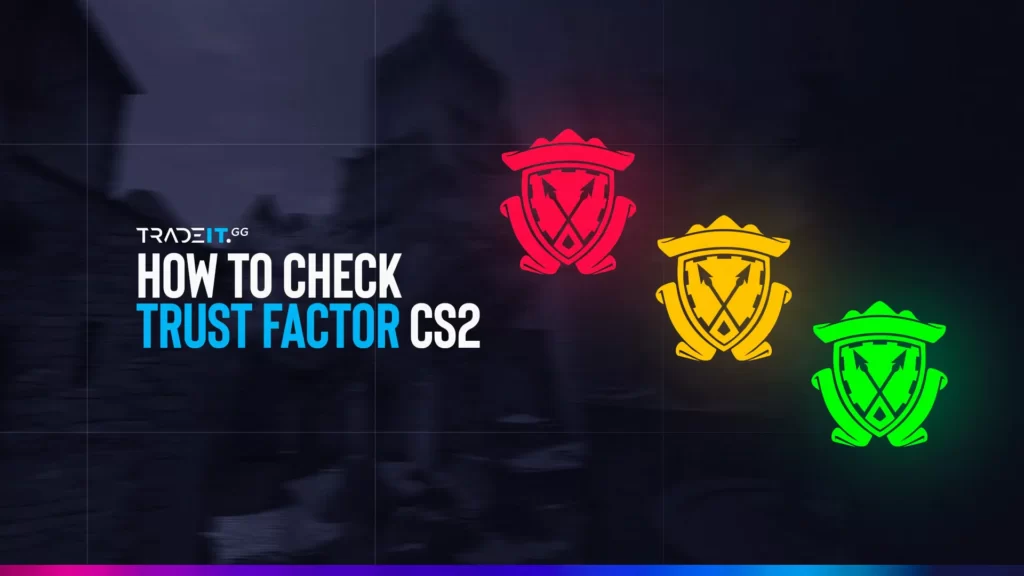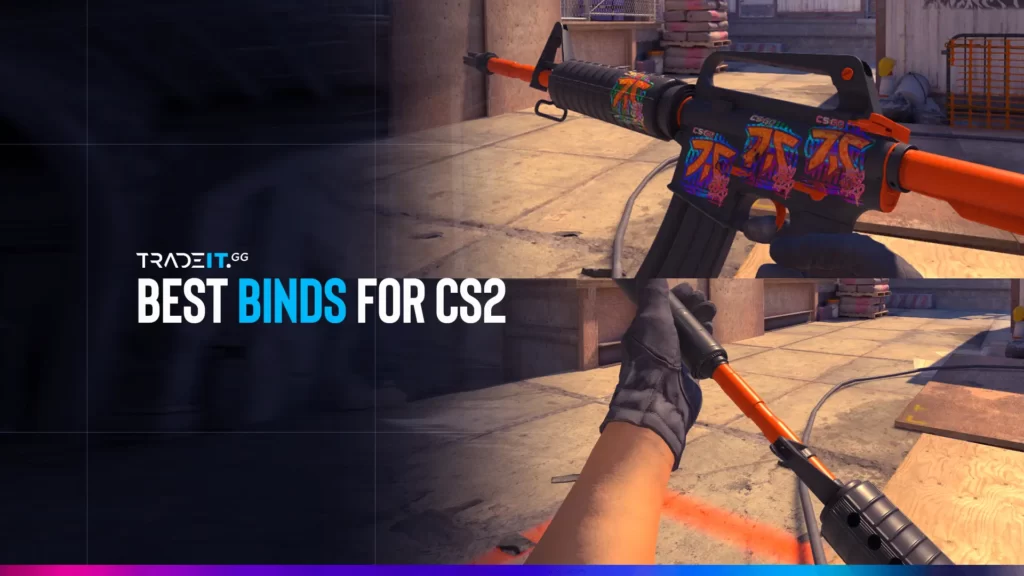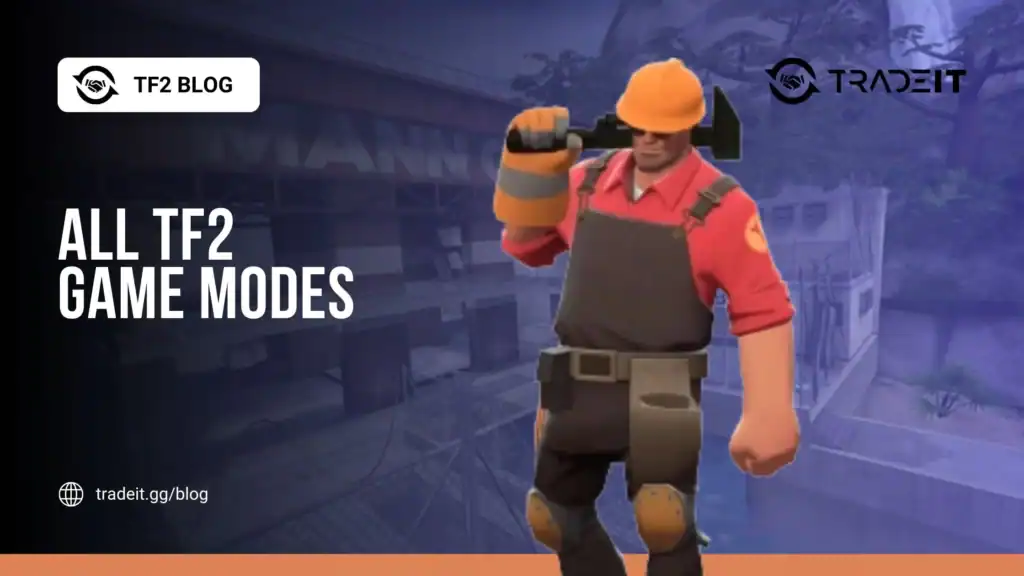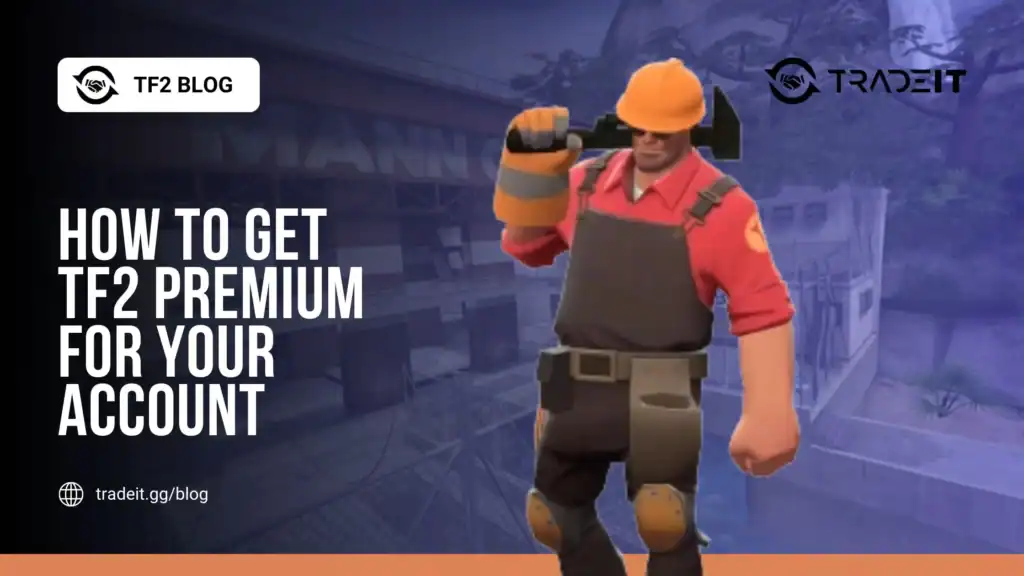So, you’ve booted another match of CS2, and you’re feeling good about this one, but suddenly, the VAC (Valve Anti Cheat) system swoops in like a hawk on the hunt, catching a whiff of foul play. What do you do in this situation, and what can it mean for you?
This guide shows the magic behind VAC’s cheat detection, the dire consequences of being caught in its crosshairs, and the lifelines available if you’re snagged by mistake.
Key Takeaways
- VAC operates on servers to prevent cheating by scanning game files for unauthorized changes and using updated algorithms to detect cheaters, which can result in permanent bans if violations are confirmed.
- VAC bans can be game-specific, restricting access to one game’s servers, or global, affecting all VAC-secured games within a Steam user’s library, and permanent bans are marked on the user’s Steam profile.
- Appealing a false VAC ban involves contacting Steam Support with evidence and explanations, though Valve does not disclose specific cheat detection details, making the appeal process challenging.
What is Valve Anti-Cheat (VAC)?
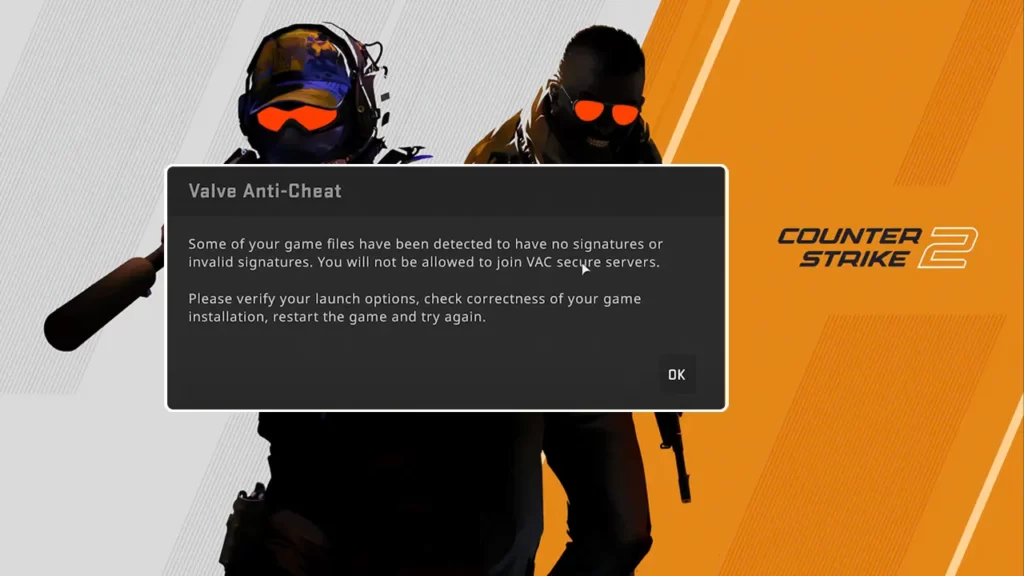
Valve Anti-Cheat, known widely as VAC, is the proprietary watchdog developed by Valve to safeguard the sanctity of online multiplayer games.
Since its inception in 2001, VAC has evolved into a sophisticated system deployed across over 100 games, including CS2, becoming a cornerstone of integrity in the gaming world.
How VAC Works
With VAC live, players can trust that their gaming experience remains fair and enjoyable, thanks to the dedicated efforts of the VAC team.
Its mission is simple yet critical: to detect and punish those who use third-party modifications to gain an unfair advantage, ensuring that the playing field remains level for all.
Behind the scenes, Valve’s engineers tirelessly update detection algorithms and databases, a never-ending arms race against the evolving tactics of cheaters. VAC is enabled in all game modes in CS2 and consequent Valve games.
VAC Bans – Types and Consequences
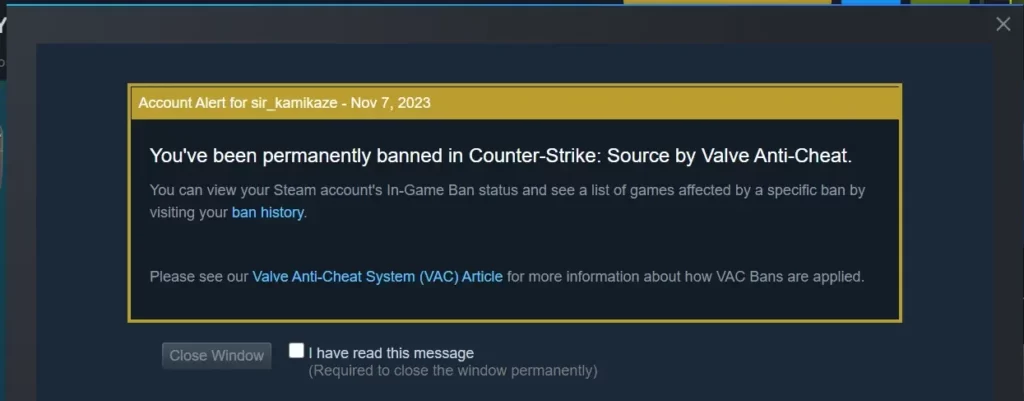
Once Valve determines a player has cheated, the ban remains unless an error in its issuance is acknowledged by Valve itself.
The consequences are substantial: not only does a player lose access to VAC-secured servers across all games on Steam, including those based on the Source 2 engine, but their Steam profile is also indelibly marked with the stigma of a ban, casting a long shadow over their online reputation and relationships.
Unlike a trade hold in Steam, a VAC ban is significantly more serious. What’s more, the imposition of a VAC ban can be a silent affair, with players only realizing their fate when access is denied, and with Steam Support’s hands tied, unable to reverse the decision.
Game-specific Bans
Game-specific bans target the individual game where cheating occurred, barring the player from entering any of that game’s VAC-secured servers. This ensures that the integrity of that particular gaming environment is upheld without affecting the player’s access to other games.
However, there are exceptions where the repercussions can ripple out further. For instance, being banned in one game built on a shared engine could result in being banned from not all games using that same engine, a sobering thought for those who might consider straying from the path of fair play.
Global Bans
The specter of a global VAC ban looms large, extending its reach to every corner of a player’s Steam library. Such bans strip away features like Steam Family Sharing for the affected game and nullify any possibility of a refund.
The banned account becomes an island, unable to transfer games or items to other accounts, although still capable of making new purchases and receiving items, a small consolation in a sea of restrictions.
Your CS2 maps, and bought Dota 2 Items, nothing will remain.
False VAC Bans and Unbanning Process
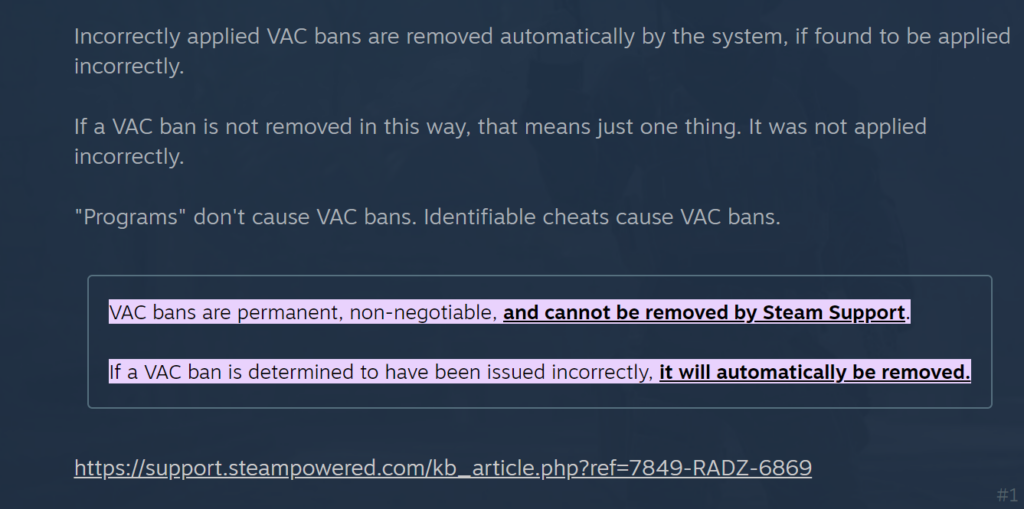
Yet, in a system as vast and automated as VAC, errors can occur. False positives have been known to happen, like the infamous incident with “COD: Modern Warfare 2,” where an update to DLL files post-launch led to the wrongful banning of over 12,000 players.
Such bans are not to be taken lightly, as they carry the same weight as any other ban, including the loss of Steam Family Sharing and disqualification from projects like the Steam Translation Server.
For those who find themselves wrongly accused, recourse is available through Steam Support, with the opportunity to present a clear explanation and any supporting evidence to have the ban overturned.
Appealing a False VAC Ban
The process of appealing a false VAC ban is shrouded in mystery, as Valve does not disclose the specifics of the detected cheat. However, the path forward begins with contacting Steam Support. Here are the steps to follow:
- Articulate your case with clarity, backing your claims with any pertinent evidence.
- Provide any additional information that may help support your case.
- Be patient and persistent in your communication with Steam Support.
It’s a daunting challenge, but not an impossible one, and while Valve has been stern on its no-appeal policy, some common ground can still be reached.
Summary
We’ve journeyed through the web of VAC bans, understanding their nature, their enforcement, and their implications. From how VAC works to protect the purity of online competition to the sobering reality of being VAC banned, the message is clear: integrity is paramount in the gaming community.
While false positives and appeals exist, they are the exception rather than the rule. The key takeaway is to play fair, stay vigilant, and respect the rules that preserve the spirit of competition.
Frequently Asked Questions
VAC detects cheats in games by scanning for unauthorized modifications, checking for foreign processes, and using signature scanning to identify known cheats.
No, VAC bans are permanent and can only be lifted if Valve acknowledges an error in their issuance. You should be aware that they are non-negotiable.
Receiving a VAC ban leads to loss of access to VAC-secured servers, a public mark on your Steam profile, and may result in being excluded from esports tournaments. It’s important to be aware of these consequences.
Yes, you can appeal a false VAC ban by contacting Steam Support and providing a clear explanation and supporting evidence.
Yes, if you are VAC banned on CS:GO, you will also be banned from playing on VAC-secured servers in CS2. Be aware of the implications of VAC bans when transitioning between these games.


